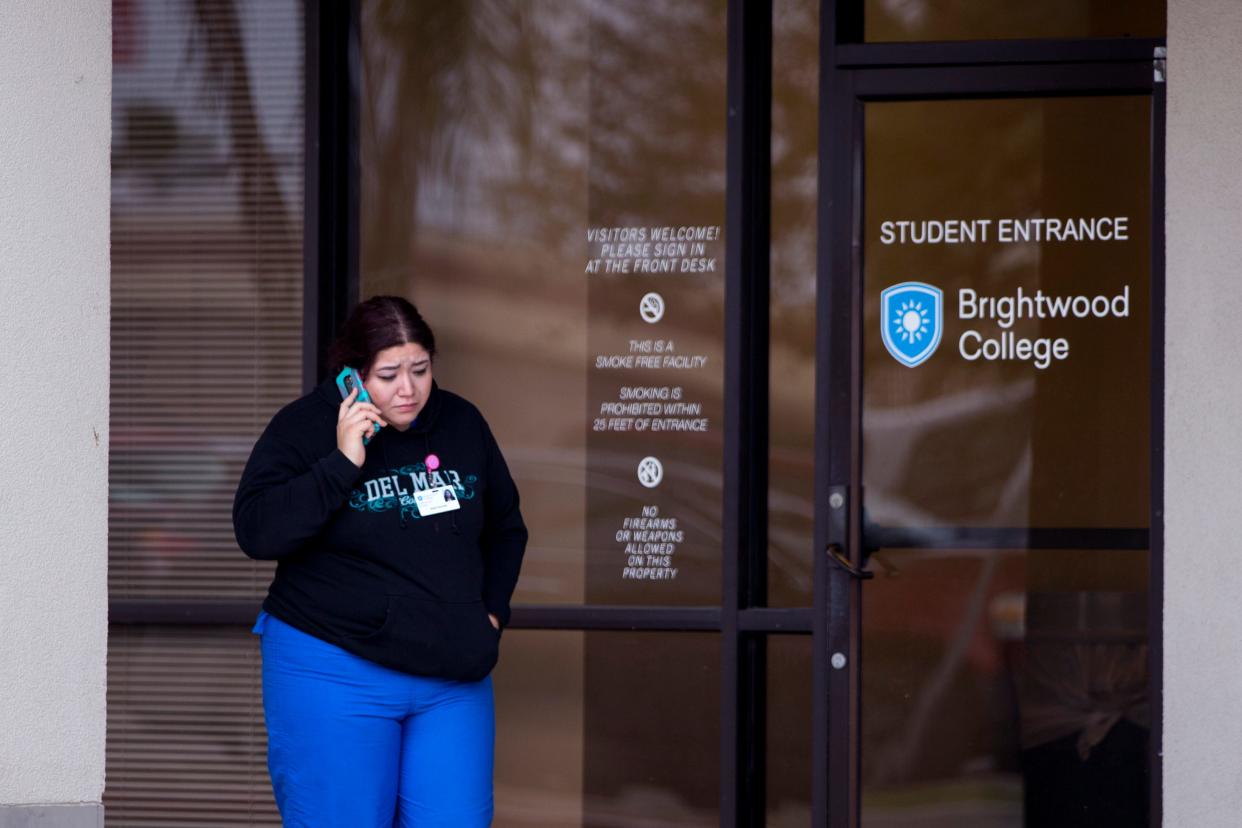Student loans: Betsy DeVos rule change means college students must fight for loan forgiveness

WASHINGTON – The U.S. Department of Education issued new rules late Friday that could make it more difficult for students to get federal loan forgiveness if they attended colleges that close suddenly.
The rules, which have been known as "borrower defense," have been the subject of controversy for much of Betsy DeVos’ turn as education secretary. She has long sought to overturn the 2016 rules from former President Barack Obama's administration on the grounds that it was too easy for students to seek loan forgiveness. The new rules would require student borrowers to provide more evidence that they had been misled about the college’s outlook and, as a result, can’t find employment. It also shifts more of the responsibility onto students to vet the colleges they attend.
“I called for this regulatory reset more than two years ago, as it became clear the old rules just weren’t working,” DeVos said in a news release. “We believe this final rule corrects the wrongs of the 2016 rule through common sense and carefully crafted reforms that hold colleges and universities accountable and treat students and taxpayers fairly.”
The new rules apply to loans issued on or after July 1, 2020. The department said the changes would save roughly $11 billion over the next decade – in part because the feds would forgive fewer loans.
DeVos is pushing the changes while the national discussion about student loans has never been louder. The nation has about $1.6 trillion in student loan debt, and several Democratic presidential hopefuls have rolled out student loan forgiveness into their platforms.
One plan:How much does Warren's debt forgiveness plan cost? A lot.
Upping the stakes: What's different about Bernie Sanders' student loan plan? It would help more rich people
Critics were quick to voice their concerns on Friday, warning borrowers might struggle to get the Education Department to agree to forgive their loans. The Project on Predatory Student Lending went so far as to say it would have to sue to prevent the rules from taking effect.
The department argued the new rules would save taxpayer money while still protecting those who might have been genuinely defrauded. The department also said the new rules discourage borrowers from making false claims in an attempt to game the system.
Among the many changes in the 846-page document, borrowers now must apply for loan forgiveness if their college closes suddenly. Before, they were automatically eligible for forgiveness. (The window for applying for forgiveness after a school closes has been extended to 180 days instead of the prior 120.) Groups of people – such as whole classes at a college that’s closing – no longer can file for forgiveness, as they had been able to in the past. Borrowers will also have to provide evidence they searched for a job, including emails that would confirm they had applied for work or attended a career fair.
A version of the borrower-defense rules had been in place since 1995, but they weren’t widely used until 2015. That’s about the same time the for-profit Corinthians College closed abruptly, leaving thousands of students with millions in debt. The DeVos department has argued the Obama administration expanded the rules to serve these students.
As of March 2019, roughly 180,000 applications for debt forgiveness were awaiting approval, despite court rulings in 2018 ordering the department to act.
DeVos has spent much of her time as education secretary focusing on school choice for children. Her emphasis in the higher education sector has been reducing regulations. Critics have said these moves disproportionately benefit for-profit colleges.
Earlier this summer, DeVos’ department repealed a rule that would have barred federal money to institutions that burden their graduates with high levels of debt compared with their actual earnings.
DeVos has also pushed to loosen the federal rules surrounding college accreditation. The department argued less bureaucratic rigmarole will mean colleges can more quickly place students in high-demand jobs, while critics have said laxer standards could leave students more indebted with worthless degrees.
For-profits have attracted close public scrutiny in recent years due to the high-profile and sudden closure of several institutions. In addition to Corinithians, ITT closed in 2016 and the Education Corp. of America’s 75 campuses shut their doors in 2018. Most recently, Argosy University closed earlier this year, leaving thousands of students in the lurch.
Education coverage at USA TODAY is made possible in part by a grant from the Bill & Melinda Gates Foundation. The Gates Foundation does not provide editorial input.
This article originally appeared on USA TODAY: College student loans: Forgiveness to be harder under Betsy DeVos rule

